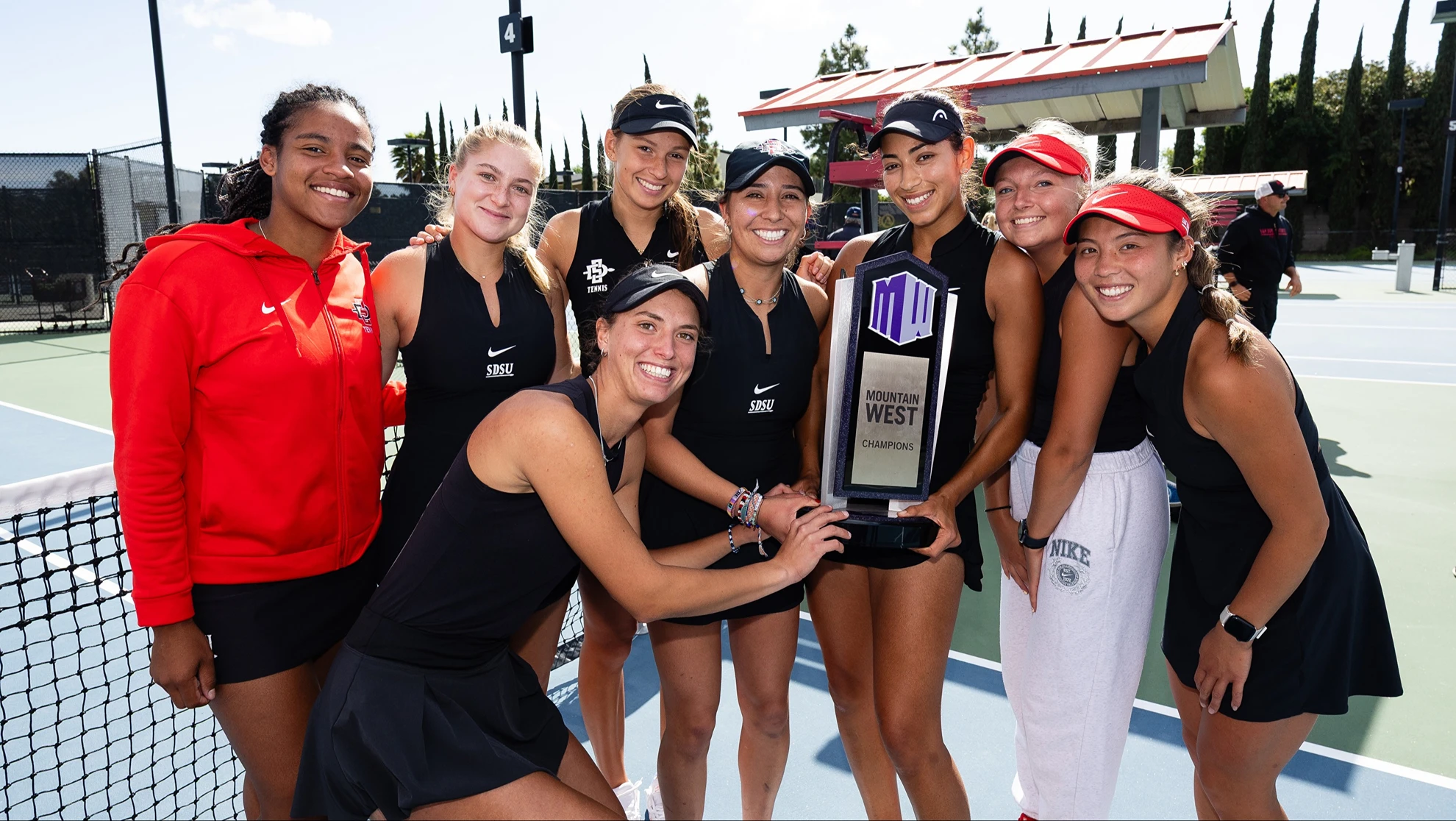Student Success: Benefits of Being Active on Campus
Participation in student councils can create connections and leadership opportunities that last a lifetime

When students are new to San Diego State University, oftentimes they feel alone as they navigate their academic journey. Student councils provide connections to other like-minded students who are studying in a particular college.
With nine active student councils, students can help steer events, make programming recommendations, and collaborate with clubs and organizations. Councils advocate for students and provide a bridge between the colleges and SDSU’s governing body, Associated Students. Clubs and organizations work in tandem with the councils to obtain funding for specific events and projects.
In addition to running for leadership positions, students can share their concerns and ideas by attending the public college council meetings that take place weekly. Council meetings also help students find out about the many academic, professional, and social activities across the entire campus.
Tess Larsen, executive vice president of the College of Arts and Letters (CAL) Council is a third-year English major and this is her second semester as a council leader. Larsen is and works with.
”Being involved in the student council has given me the opportunity to build leadership skills that I had not previously had the chance to develop, become more involved on campus, and meet people I would not have had the chance to meet otherwise,” Larsen said.
Employers and graduate schools value leadership experiences as it shows them that students are willing to go the extra mile in their community, to serve others while being a team player and being part of a larger vision.
“In the COE, it is a bit big, and it might feel a little bit scary at first being a transfer student, graduate student, and even an undergraduate, The COE student council is a safe space where you can voice all your opinions about what you think is different or a little bit wrong in your community,” said College of Education Student Council President Renz Cabrera, a fourth-year liberal arts major.
The COE Council seeks to hear student voices to ensure that students feel welcome and engaged in decisions that affect the college.
“In my freshman and sophomore year I wasn’t really involved, and I felt disconnected from everyone. I felt like I had no sense of relationships with my peers and professors,” Cabrera said. “Ever since I got the opportunity to be involved, it has made everything easier.”
Naomi Chuang is a third-year mechanical engineering major and this is her second term as vice president of academic affairs in the College of Engineering Student Council (CESC).
“Before I joined, I thought that CESC mostly had serious conversations and worked with administrators. While that is true, our work also includes planning fun events such as the Pumpkin Drop, or even running around in inflatable costumes for Aztecs Rock Hunger,” she said.
Many council members represent clubs that engage historically marginalized communities.
“These representatives give us insight into the conversations and concerns of communities that we may not personally be part of,” Chuang said. “Being part of the student council means that we have a duty to make sure decisions that are being made in meetings are serving students as a whole, not just any particular group.”
CAL Council VP of Finance, Ethan Pellegrini, a third-year history and political science major said, “Getting to know the administrators of my college has been extremely valuable to me, as it has made me more confident in my decision to become heavily involved in CAL.”
Pellegrini added that through the council, he sees how both administrators and professors support CAL students.
“Knowing my administrators has illustrated their commitment to our educational journey and how they want to see us reach our highest potential and succeed,” he said.
Being part of the CAL Council has dramatically improved his feeling of community at SDSU and CAL. A council member for the past two years, he interacts with CAL students and others from across campus who are involved in all aspects of student government.
“I have built and improved many skills that will be transferable to my professional career, including leading the budgeting process, creating budget plans, and further building my ability to work within a team,” Pellegrini said. “The biggest surprise while being on the council was how much my role allowed for growth.”
College administrators often seek input from students in the councils to gain perspective on what students want.
Aileen Taylor-Grant, advisor to the CAL Council said, “The CAL council has been instrumental in providing feedback on student services and resources provided to CAL students. Our shared governance model has allowed us to enhance and improve the overall CAL learning community in a meaningful way.”
“Many student leaders on the executive board have used the leadership skills they developed while serving on the council to propel them into their careers or the next phase of their academic journey,” she said.
Two CAL alumni who served on the executive board in 2020-21 are currently serving in leadership roles now — one is now a Senate Fellow for the California State Senate and pursuing a graduate certificate in applied public policy and government through the Center for California Studies, and the other is pursuing a graduate degree in Postsecondary Educational Leadership and Student Affairs at San Diego State University.
To learn more about getting involved with any of the SDSU student councils, visit: https://as.sdsu.edu/govt/college/



